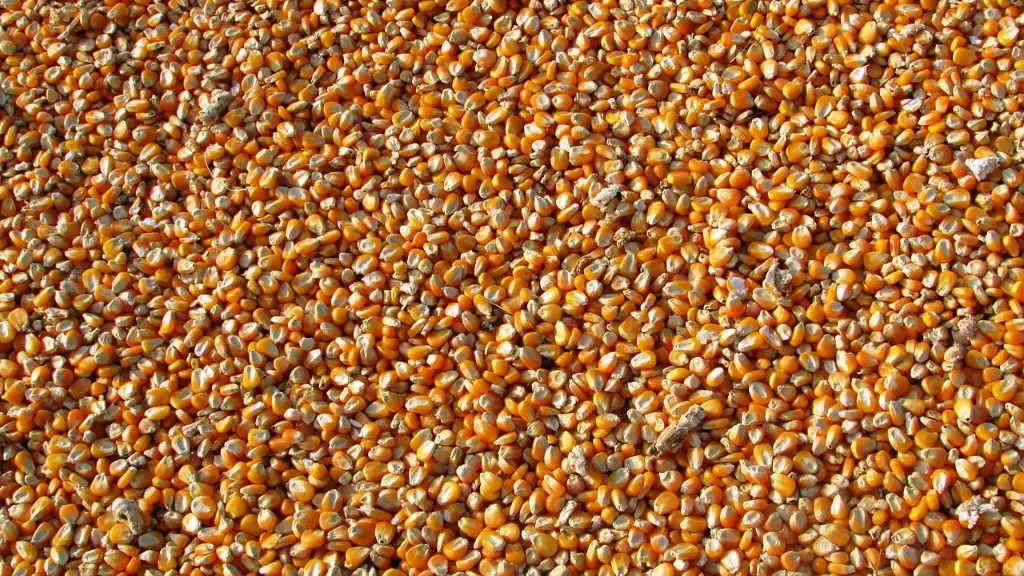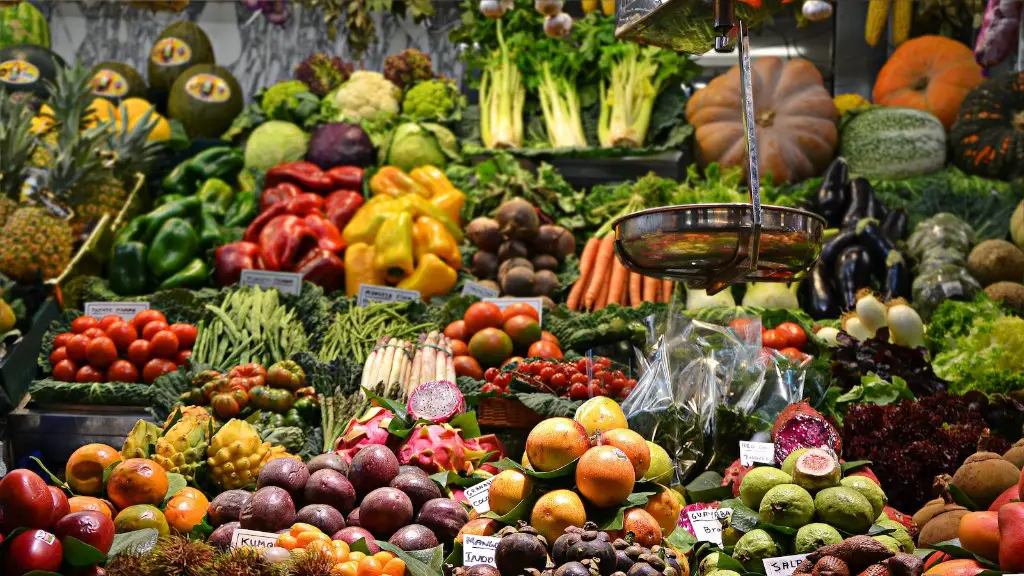The importance of finance in agriculture is undeniable due to its role in providing producers with capital to invest and improve the productive potential of their production. Finance is the backbone of any agricultural operation and provides a foundation for resource management, development, and growth. Farms use different types of loans, such as term loans, operating loans, and long-term loans, for any expenses incurred for machinery, equipment, land, seeds, new buildings, and crops. It also helps farmers acquire additional capital for purchasing raw materials, maintaining crop cycles, and meeting other operational expenses. Through financial services, farmers can also benefit from innovative technologies to increase efficiency, profitability, and stability of production.
Agricultural finance also offers benefits to non-agricultural businesses by providing access to capital investments, which are necessary for technology adoption and other innovative approaches to farming. This type of financing helps producers maximize the potential of their production and resource utilization while minimizing waste and environmental impact. For example, many producers have taken advantage of access to capital and have successfully implemented precision agriculture, reduced tillage, and organic production practices. Farming operations that take advantage of these practices have seen improved soil fertility, reduced fertilizer costs, and increased crop yields. Furthermore, access to agricultural finance has enabled producers to diversify their operations and enter into related agriculture markets, such as agri-tourism, artisanal production, and niche production.
Agricultural finance also plays an essential role in the food value chain by providing incentives for food processors and distributors to invest in their products and services. Financial services can provide increased flexibility to producers and food processors in obtaining access to capital and responding to changes in market conditions. Additionally, they can lead to improved labor productivity, allowing food producers to increase the amount of food produced. By increasing access to finance, producers can drive the value-added food industry forward and further improve upon existing production systems.
Moreover, agricultural finance can act as a stabilizing force for producers against the risks associated with seasonality and limited access to capital. Agricultural finance helps farmers protect against unforeseen risks related to crop losses and unexpected production costs. By helping farmers secure credit access, producers can prepare for the future and reduce their vulnerability to price volatility of agricultural commodities. Additionally, access to finance allows farmers to invest in resources and increase the technological potential of their production. This can reduce their reliance on subsidies from the government and improve their long-term prospects.
In summary, finance plays a critical role in agriculture and is essential for producers looking to secure the capital necessary for investment, innovation, and risk management. Improved financial access can make all the difference to agricultural producers, help them respond to market fluctuations, and develop their operations. Financial services provide producers with increased flexibility, access to capital, and resources while also helping to drive the value-added food industry forward.
Innovation and Technology
Financial services can enable producers to adopt innovative technologies and techniques to improve their operations and increase profitability. By increasing access to capital and credit, farmers can take advantage of new technologies to improve their operations and increase productivity. For example, advances in precision agriculture utilize satellite imagery and sensors to better manage fertilizers and irrigation with greater accuracy and efficiency. Innovations in farm machinery and equipment, as well as new production techniques and systems, can help increase yield, reduce input costs, and improve efficiency and productivity. Access to financial services can also spur adoption of organic and sustainable production practices, further helping to reduce environmental impact and heal the land.
Financial services also provide incentives for farmers to invest in supporting industries and expand their operations. By increasing access to financing opportunities, food processors and distributors can increase the value and quality of their products. This, in turn, can fuel the growth of related agri-businesses such as packaging and marketing companies, storage facilities, and distribution channels. This type of investment can also facilitate the development of specialized markets such as gourmet, artisanal, and boutique food industries.
Investment in technology and innovation can also help to protect agricultural producers against unpredictable weather and climate. Weather forecasts and crop insurance can provide producers with the knowledge necessary to adjust their operations to be more resilient against changing environmental factors. Additionally, financial services can help producers diversify their operations in the face of changing markets and help them assess the economic sustainability of their production systems.
Risk and Financial Management
Agricultural finance plays an important role in helping farmers manage the different risks associated with their operations. Access to financing helps farmers protect against potential losses from diseases, pests, and other unforeseen events. Crops can be insured to help mitigate losses from bad weather, or even crop failure. Additionally, access to credit services can help producers make the necessary investments in enhanced crop protection, such as purchasing specialized fertilizers, insecticides, and herbicides. By helping to reduce the risks associated with farming operations, producers can more confidently pursue their operations and increase the potential return on their investments.
Financial services can also allow farmers to manage cash flow and administrative expenses. Farmers can make use of account management systems to keep track of their production costs, labor expenses, and other operational costs. Furthermore, access to credit services can help farmers the capital necessary to implement new techniques, equipment, and technologies. By accessing these tools, producers can better manage their costs and increase efficiency, leading to improved profitability.
Finally, agricultural finance provides farmers access to capital to purchase fixed assets, such as land and machinery. This can help producers to expand their operations or even engage in land leasing. Access to capital also allows farmers to purchase seeds and other inputs in bulk, which can help to reduce input costs and increase profits. Expanding access to financial services can help farmers to access the capital necessary to make sound investments, improve the productivity of their operations, and manage their risks.
Access and Education
Agricultural finance can provide producers with the flexibility to respond to changing markets and increase the capacity of their operations. However, lack of access to financial services can limit agricultural producers from taking advantage of these opportunities. By enhancing financial literacy and access, producers can more effectively manage their finances and investments. Producing agricultural options and education can empower producers to better understand the financial risks and opportunities associated with their agricultural operations.
Better access to finance can also empower women to participate more fully in agricultural production, especially in emerging and developing countries. Women produce up to 80% of food crops in some regions, yet often lack access to finance and resources. By increasing access to financial services, and improving the financial literacy of female producers, this can help to increase the yields of their operations and empower them to better manage their operations.
Furthermore, access to finance can also facilitate the development of new businesses and the transfer of knowledge and skills. Financial technology (fintech) can enable small-scale producers to become big business owners by providing loans and capital. By connecting these businesses to larger markets, fintech also facilitates knowledge transfer, allowing producers to learn new techniques, technologies, and market trends.
Finally, access to finance can enable young producers to have greater access to capital and resources, allowing them to become more involved in agricultural production. This can also act as an incentive for young producers to use the latest technology and capitalize on the potential benefits of advancing technologies.
Conclusion
In conclusion, finance plays an essential role for producers and the agricultural industry. It provides producers with capital to invest and increase the potential of their operations, enabling them to respond to market changes, diversify their operations, and increase their profitability. Additionally, access to quality financial services can empower women and young producers in agricultural production and increase their knowledge and capacity. By enhancing access to finance and education, producers can better understand the risks and opportunities associated with their operations and make informed decisions to optimize their business.




